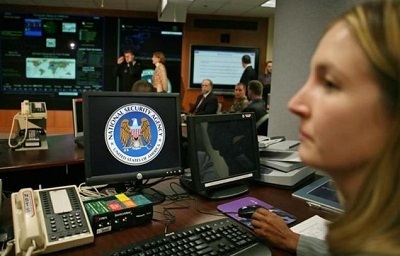Big Brother is Watching
 It reads like a page out of George Orwell’s ‘‘1984:’’ spies, secret courts, and searches of Americans without a warrant. It is clear: Big Brother is watching us.
It reads like a page out of George Orwell’s ‘‘1984:’’ spies, secret courts, and searches of Americans without a warrant. It is clear: Big Brother is watching us.
Most Americans may not be fully aware of what is taking place behind closed doors of government spy agencies, but the reality is our government is spying on ordinary, everyday Americans.
How?
Through an old piece of legislation, originally signed into law by President Carter in 1978, called the Foreign Intelligence Surveillance Act, or FISA.
FISA allows our government to spy on foreign agents, including terrorists, primarily overseas. The government collects all of this information and puts it into a database. If they want to use or search the database, they go to a secret court, and that court issues a secret warrant to search the database.
This court operates behind closed doors and issues those secret warrants to go after—remember—bad guys overseas.
As the subcommittee chairman of terrorism, I have no problem with our government going after terrorists who seek to harm Americans.
What I do have a problem with is the government uses these databases that they seize and then looks in those databases about Americans and their activities, violating their Fourth Amendment rights because they don’t have a warrant to go into these databases to look for Americans. Remember, they are searching for terrorists.
Very suspicious, isn’t it?
Our Judiciary Committee has continually asked the intelligence community: How many times have you searched? They refuse to tell us how many searches and seizures there are on Americans in that database.
They seize the information, and, quite frankly, we don’t know how many times they seize this information on Americans.
They search this database to see, for example, if Bobby Oglethorpe is committing a crime in the United States, maybe having nothing to do with terrorism. Maybe it is a robbery, maybe it is an IRS fraud, maybe it violates other laws of the United States. But, remember, they are looking for that without a warrant.
This data is kept. The government puts it in their database, and they say it is legal. This information on Americans was seized based on this secret warrant of foreigners issued by a FISA judge.
Here is what happens: While seizing the communications of a suspected foreign agent—maybe an al-Qaida terrorist talking to another al-Qaida terrorist—the government, incidentally, picks up communications of American citizens. These communications may not have anything to do with terrorism.
Occasionally, the government then decides to go into this database that was inadvertently seized—as they call it—without a Fourth Amendment warrant on Americans, and checks to see how many times an American name, or other identifying information, comes up. If they find something, they use this data on the American citizen.
Now, they still don’t have a warrant to search Americans’ information, even if it was incidentally collected.
According to The Washington Post, 90 percent of the account holders, whose communications were collected, were not targets. The bad guys overseas, they were Americans: 90 percent of them.
Nearly half of the surveillance files contained names, email addresses, and other details that the NSA marked as belonging to American citizens or residents.
So, what information are they getting?
They get communications, texts, and emails.
Without a warrant, remember, secret courts issuing secret warrants, and they don’t tell anybody about it.
Under section 702 of the FISA legislation, this warrantless search of Americans is legal. But this, in my opinion, violates the U.S. Constitution.
As a former judge, I am very concerned about the loss of our Fourth Amendment right of privacy in the United States, based on this unconstitutional law. The Fourth Amendment is sacred to this country and to the Founders who drafted it. It is up to Congress to uphold Americans’ Fourth Amendment rights.
Despite intense debate in the House Judiciary Committee, I am still concerned the House leadership is planning to reintroduce and reauthorize the FISA legislation and not have these reforms to protect Americans’ privacy. A reauthorization of FISA with weak language only seeks to put Americans’ privacy at stake and violates the U.S. Constitution.
Any 702 reauthorization should simply require that if you want to look at the data that was incidentally seized on Americans, get a search warrant or stay out of that data; otherwise, it violates the Constitution.
And that is just the way it is.








